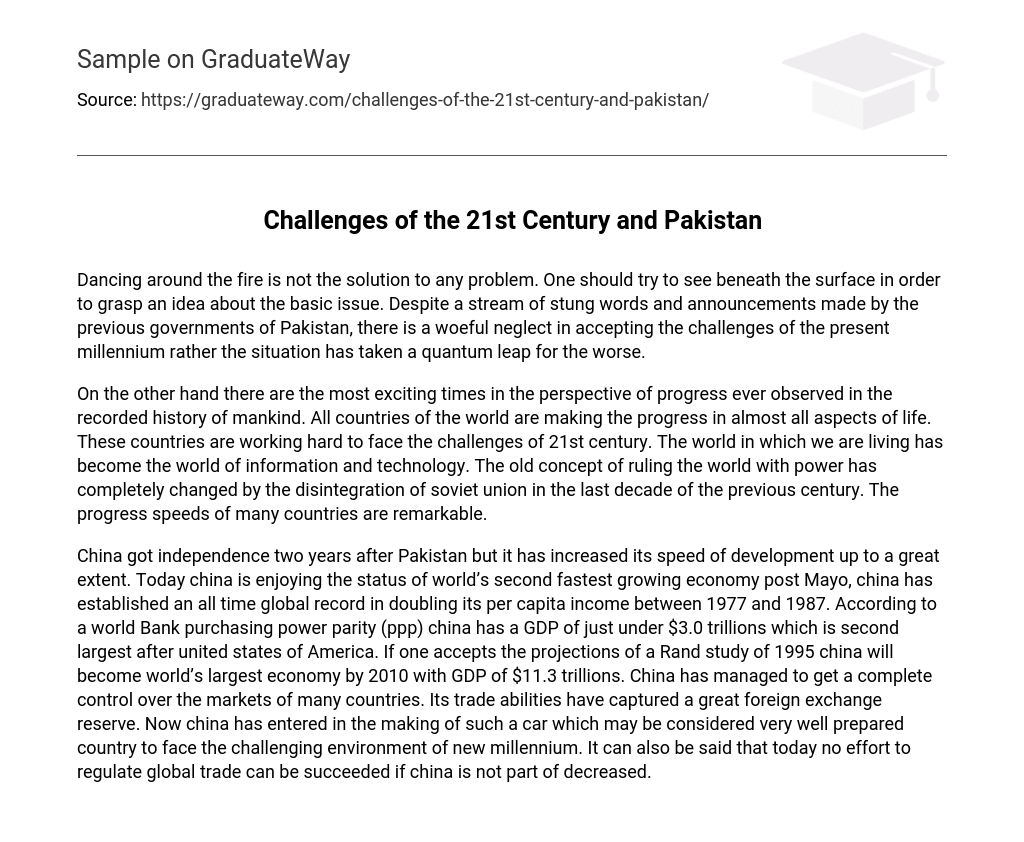Instead of effectively addressing problems, dancing around the fire is not a solution. It is crucial to delve deeper and comprehend the underlying issue rather than merely making promises and statements. Previous governments in Pakistan have failed to acknowledge the challenges of the current millennium, leading to a worsening situation.
In spite of this, these times are also the most exciting periods for human progress. Almost all countries worldwide are making advancements in different fields as they work towards addressing the challenges of the 21st century. Our world has transformed into an information and technology-driven society, rendering the outdated concept of global dominance through power obsolete.
The dissolution of the Soviet Union in the late 20th century brought about a complete revolution to this situation. The rate at which numerous nations are progressing is truly remarkable.
China, which gained independence around the same time as Pakistan, has experienced rapid development and is now the world’s second fastest-growing economy. China achieved a significant milestone by doubling its per capita income between 1977 and 1987, following Mayo. According to the World Bank’s purchasing power parity (PPP) data, China has a GDP just below $3.0 trillion, making it the second largest economy globally after the United States of America.
Projections from a Rand study conducted in 1995 suggest that China is expected to surpass all nations and become the largest economy by 2010 with a projected GDP of $11.3 trillion. In addition to this growth, China has effectively dominated markets in various countries and accumulated substantial foreign exchange reserves through strong trading capabilities.
Furthermore, as an indication of its readiness to face challenges in the new millennium, China is currently entering into advanced car production. It can be argued that any efforts to regulate global trade would not succeed without involving China.





